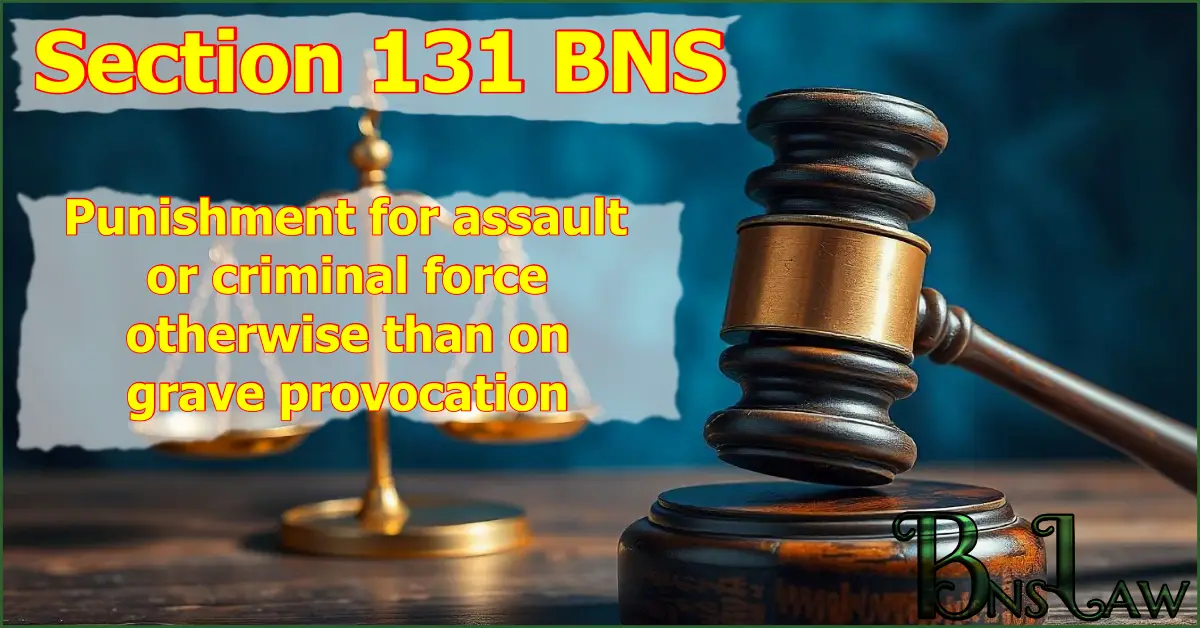Section 131 BNS
Whoever assaults or uses criminal force to any person otherwise than on grave and sudden provocation given by that person, shall be punished with imprisonment of either description for a term which may extend to three months, or with fine which may extend to one thousand rupees, or with both.
Explanation 1— Grave and sudden provocation will not mitigate the punishment for an offence under this section,—
(a) if the provocation is sought or voluntarily provoked by the offender as an excuse for the offence; or
(b) if the provocation is given by anything done in obedience to the law, or by a public servant, in the lawful exercise of the powers of such public servant; or
(c) if the provocation is given by anything done in the lawful exercise of the right of private
defence.
Explanation 2— Whether the provocation was grave and sudden enough to mitigate the offence, is a question of fact.
READ OTHER SECTIONS OF CHAPTER VI — OF OFFENCES AFFECTING THE HUMAN BODY
FAQs of BNS Section 131
-
131 BNS punishment and fine
Punishment and fine under Section 131 of the BNS: Imprisonment for 3 months, or fine of 1,000 rupees, or both.
-
131 BNS cognizable or not
The offence under Section 131 of the BNS is non-cognizable.
-
131 BNS bailable or not
The offence under Section 131 of the BNS is bailable.
-
131 BNS trial court
Offence specified in Section 131 of the BNS is triable by any Magistrate.
Important Points
- Cognizable Offences: These are offences where a police officer can arrest a person without a warrant.
- Non-Cognizable Offences: These are offences where a police officer cannot arrest a person without a warrant.
- Bailable Offences: These are offences where the accused can get bail from the police station itself. All bailable offences are listed in the First Schedule of the Bharatiya Nagarik Suraksha Sanhita (BNSS).
- Non-Bailable Offences: Offences in which bail is not granted directly from the police station but after hearing the case in the court, the judge decides when bail will be granted. All non-bailable offences are listed in the first schedule of the Bharatiya Nagarik Suraksha Sanhita (BNSS).
- In the above FAQ, “trial court” means the court that has jurisdiction to try the offence.
- In the above FAQ, the expression “Magistrate of the first class” and “Any Magistrate” does not include Executive Magistrates.
Read other Sections of the BNS
Reference Link: New Criminal Laws (BNS), Ministry of Home Affairs







